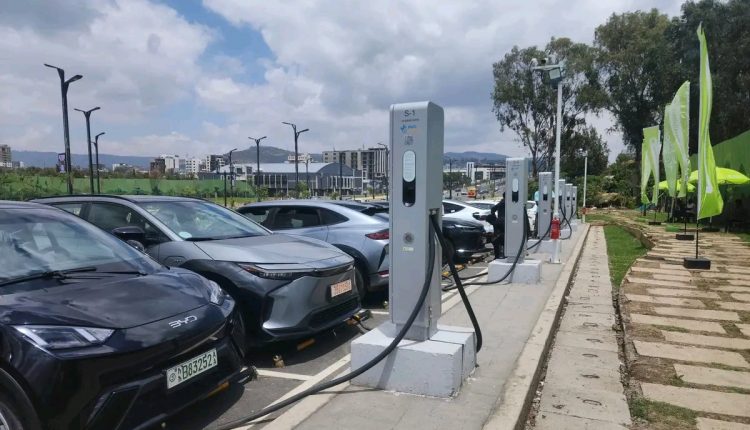From Roads to Rails: Electric Vehicles Power Ethiopia’s Shift to a Climate-Resilient Economy
Addis Ababa, August 5, 2025 (FMC) — Ethiopia’s transition toward a green economy is gaining momentum, with electric vehicles (EVs) playing an increasingly pivotal role, according to the Ministry of Transport and Logistics.
Yizengaw Yitayih, a senior climate change expert at the Ministry, told Fana Digital that the country is actively implementing the Paris Agreement on climate change, which it ratified following the global accord’s adoption in 2015. He said the move is part of broader national efforts to cut greenhouse gas emissions and promote environmental sustainability.
As part of its commitments, Ethiopia has launched several strategic initiatives, including the flagship Green Legacy Program, aimed at enhancing ecological resilience and climate adaptation.
“The deployment of electric vehicles in the transport sector is one of the critical measures being undertaken to reduce carbon emissions,” Yizengaw noted. “We are seeing increased local assembly of EVs, the installation of public charging infrastructure, and the expansion of EV fleets in various cities.”
He highlighted that numerous electric buses have already been deployed in Addis Ababa and other regional cities, supporting the country’s goal of developing a robust multi-modal transport system.
The expert emphasized that the adoption of EVs not only contributes to reducing emissions but also supports the creation of a healthier urban environment and lowers national fuel expenditures.
In addition to road transport, Ethiopia’s investment in electric rail infrastructure—such as the Addis Ababa Light Rail Transit and the Ethio-Djibouti Railway—has significantly curbed carbon emissions from both passenger and freight transport.
“These collective efforts underscore the government’s commitment to building a climate-resilient green economy,” Yizengaw affirmed.

